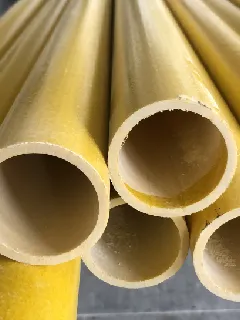loading...
- No. 9, Xingyuan South Street, Dongwaihuan Road, Zaoqiang County, Hengshui, Hebei, China
- admin@zjcomposites.com
- +86 15097380338
- Welcome to visit our website!
fibre reinforced plastic tanks and vessels
Fiber Reinforced Plastic Tanks and Vessels A Modern Solution for Industrial Applications
In the realm of industrial storage solutions, Fiber Reinforced Plastic (FRP) tanks and vessels have emerged as a preferred choice across various sectors
. Their unique composition combines the lightweight properties of plastics with the strength of fiberglass, resulting in robust, versatile, and durable storage solutions.FRP is a composite material made of a polymer matrix reinforced with fibers, typically glass. This combination not only enhances the mechanical properties of the material but also makes it resistant to a range of environmental factors including corrosion, temperature fluctuations, and chemical exposure. As a result, FRP tanks and vessels are increasingly used in industries such as chemical processing, water treatment, agriculture, and food production.
One of the most significant advantages of FRP tanks is their corrosion resistance. Unlike traditional metal tanks, which can suffer from rust and corrosion when exposed to harsh chemicals or outdoor environments, FRP tanks maintain their integrity over time. This aspect is critical in the chemical industry, where storage of aggressive substances is a common requirement. Additionally, the non-reactive nature of FRP ensures that there is no contamination of the stored materials, making them ideal for food and beverage applications.
fibre reinforced plastic tanks and vessels

Another notable benefit of FRP tanks is their lightweight nature. Compared to metal counterparts, FRP is significantly lighter, facilitating easier transportation and installation. This characteristic can lead to reduced construction costs and time, as lighter tanks require less robust support structures and are easier to maneuver on site. Moreover, the flexibility of FRP allows for customized designs, accommodating specific requirements regarding shape and size without compromising structural integrity.
Thermal insulation is yet another advantage of FRP tanks and vessels. They can be designed to minimize heat transfer, which is especially important in applications where temperature control is crucial. This is particularly beneficial in industries where the contents of the tanks are temperature-sensitive, helping maintain product quality and stability.
Despite these advantages, it is essential to consider the specific requirements of an application when opting for FRP tanks. Factors such as UV resistance, necessary load-bearing capabilities, and potential fire hazards must be evaluated to ensure that the chosen material meets the operational demands.
In conclusion, Fiber Reinforced Plastic tanks and vessels represent a modern solution for industries seeking durable, lightweight, and corrosion-resistant options for storage and transport. Their versatility and adaptability to diverse applications underscore their growing popularity in the market. With ongoing advancements in composite technology, FRP tanks will likely continue to evolve, providing even greater performance and long-term reliability for various industrial needs.
-
The Rise of FRP Profiles: Strong, Lightweight, and Built to LastNewsJul.14,2025
-
SMC Panel Tanks: A Modern Water Storage Solution for All EnvironmentsNewsJul.14,2025
-
GRP Grating: A Modern Solution for Safe and Durable Access SystemsNewsJul.14,2025
-
Galvanized Steel Water Tanks: Durable, Reliable, and Ready for UseNewsJul.14,2025
-
FRP Mini Mesh Grating: The Safer, Smarter Flooring SolutionNewsJul.14,2025
-
Exploring FRP Vessels: Durable Solutions for Modern Fluid HandlingNewsJul.14,2025
-
GRP Structures: The Future of Lightweight, High-Performance EngineeringNewsJun.20,2025
